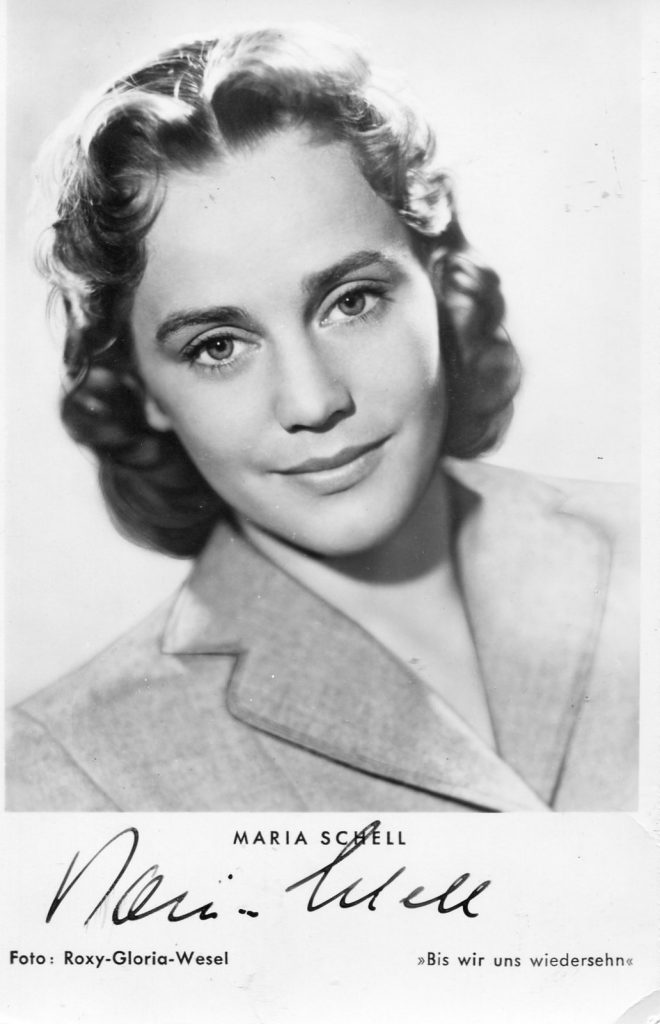
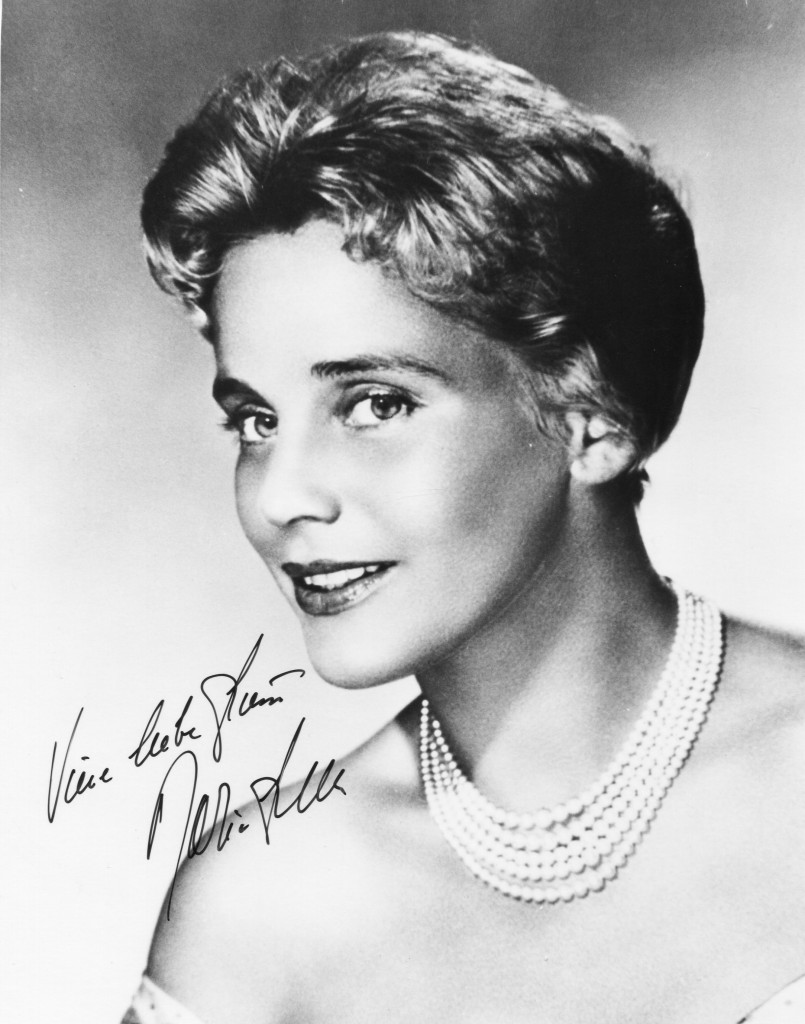
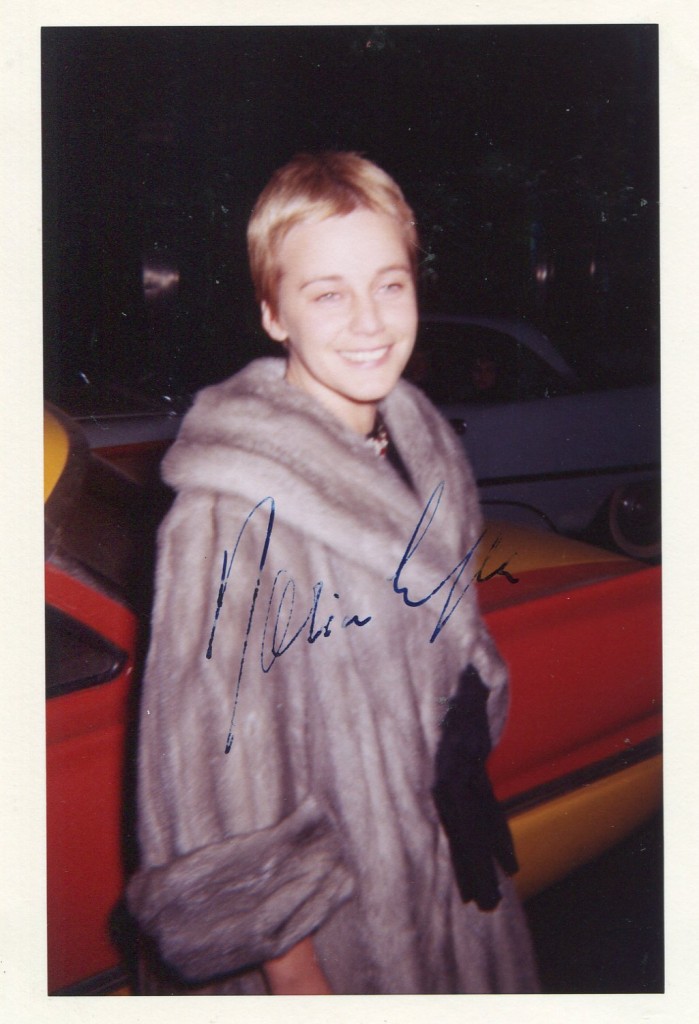
Maria Schell obituary in “The Guardian” in 2005.
Maria Schell was born in 1926 in Austria. She began her film career om the German “Dr Holl” in 1951 and during the 50’s receiuved rave reviews for a number of European movies including “”Gervaise” and “The Heart of the Matter”. She went to Hollywood in 1958 to make “The Brothers Karamazov” with Yul Brynner, “The Hanging Tree” with Gary Cooper and “Cimarron” opposite Glenn Ford in 1960. She returned to Europe and continued her career there. She was the sister of Maximilian Schell. Maria Schell died in 2005.
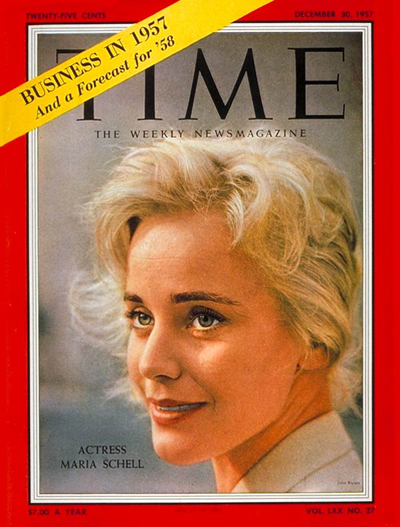
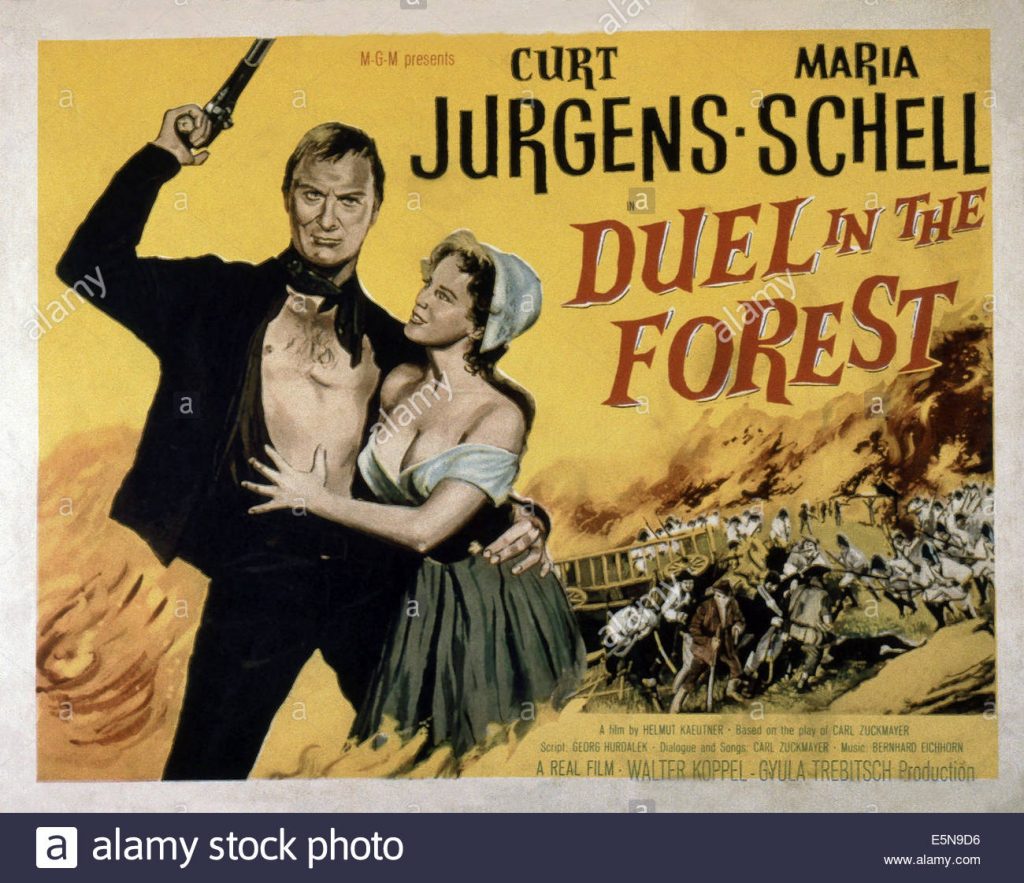
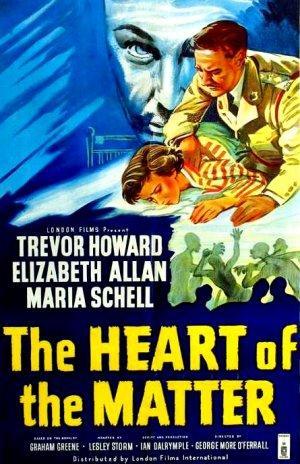
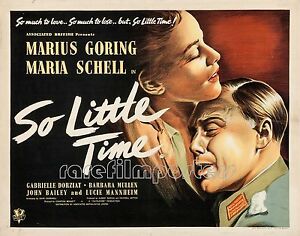

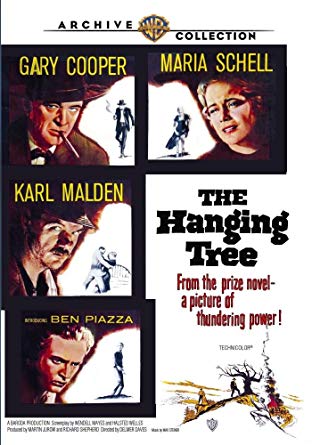
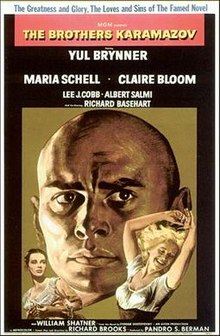
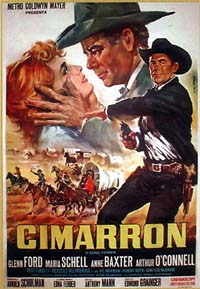
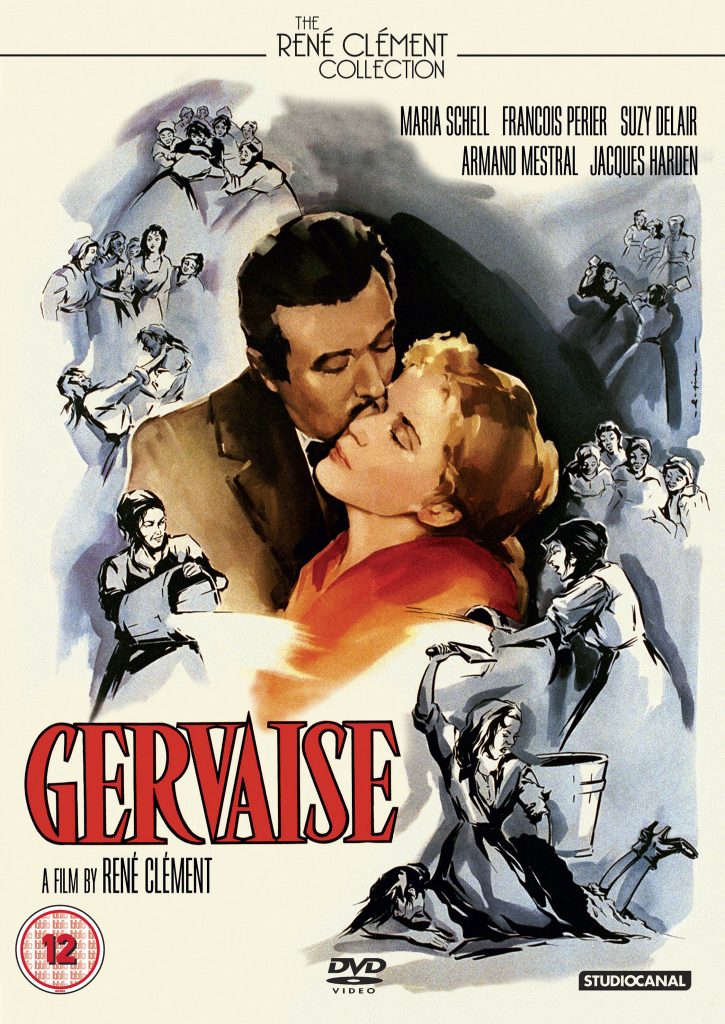
Her obituary by Brian Baxter in “The Guardian”:
Like many actors, Maria Schell, who has died aged 79, was enticed into English-language films by a remake of a successful European original. In her case, it was an adaptation, Angel With a Trumpet (1950), the original of which she had made two years earlier in her native Austria.
After this British revamp, she stayed on to play the daughter of film pioneer William Friese-Greene in the star-laden The Magic Box (1951), and within a decade had notched up a formidable 25 films, usually in leading roles, throughout Europe, Britain and the US.
Schell was soon in demand from major directors including Luchino Visconti, Sacha Guitry, Anthony Mann and Alexandre Astruc, winning awards for her role in Helmut Kautner’s The Last Bridge (1954) and Réné Clément’s Gervaise (1956).
In Britain she co-starred in three of the finest, if underrated, films of the period – opposite Marius Goring in So Little Time (1952), Trevor Howard in The Heart Of The Matter (1954) and Stuart Whitman in The Mark (1961).
Despite periods of ill-health and a three-year sabbatical, Schell worked steadily into the 1990s. But the early years exhausted her and audiences, who grew weary of her emotional, often tearful, characterisation of women who were decidedly non-feminist.
Internationally, she became less fashionable after several years of enormous fame, and later work was in Germany and less often in large-scale features such as The Odessa File (1974), with her devoted younger brother Maximilian.
Maria Schell was born in Vienna, growing up in a comfortably off, cultured environment that was shattered by the rise of Nazism. Her father, a Swiss playwright, and mother, an Austrian actor, fled the Anschluss, taking their children to Switzerland, where four years later Maria made her screen debut, as Gritli Schell, in the long forgotten Streibuch (1942). She did not act again until after the war, when her films included Der Engel Mit Der Posanne (1948), which took her to England.
It was So Little Time that gave her a significant role of the kind that became her trademark. She was cast as an aristocratic Belgian who falls in love with a German colonel – a member of the occupying forces. Although sympathetically directed by Compton Bennett, it proved too melancholy for postwar audiences. The Heart Of The Matter, based on Graham Greene’s masterly novel, found her again cheerlessly in love, this time with a Catholic police officer, serving in Africa.
Despite a compromised ending, it was her best work, alongside Kautner’s The Last Bridge. This Austro-Yugosla vian film won her special mention as best actress at the Cannes festival, for her intense portrayal of a German nurse, captured by Yugoslav partisans and coming to sympathise with their cause.
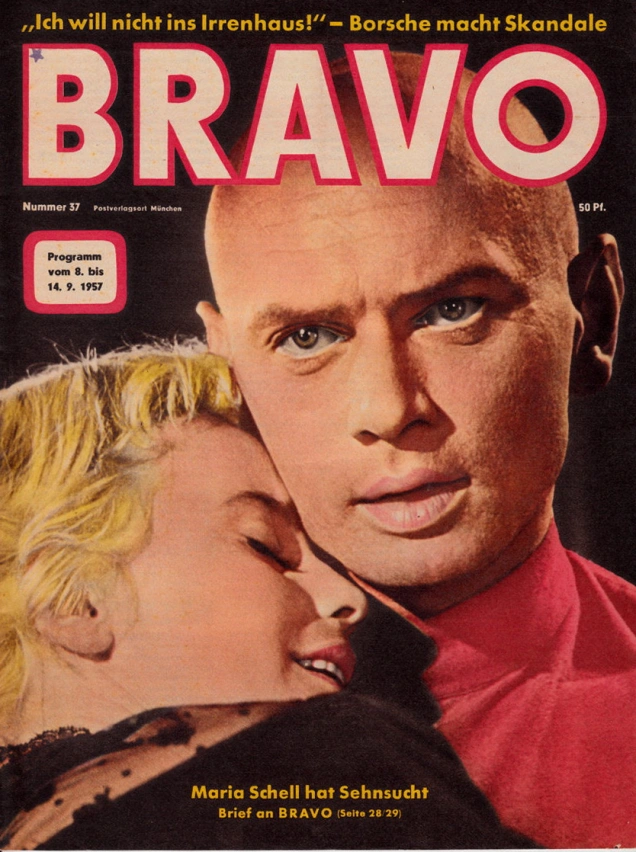

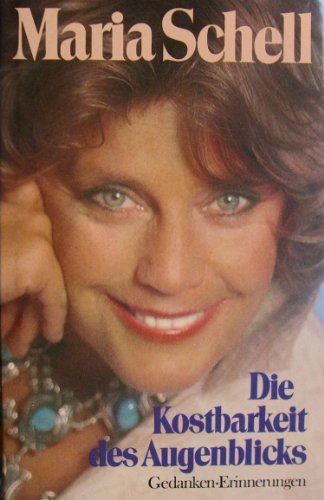
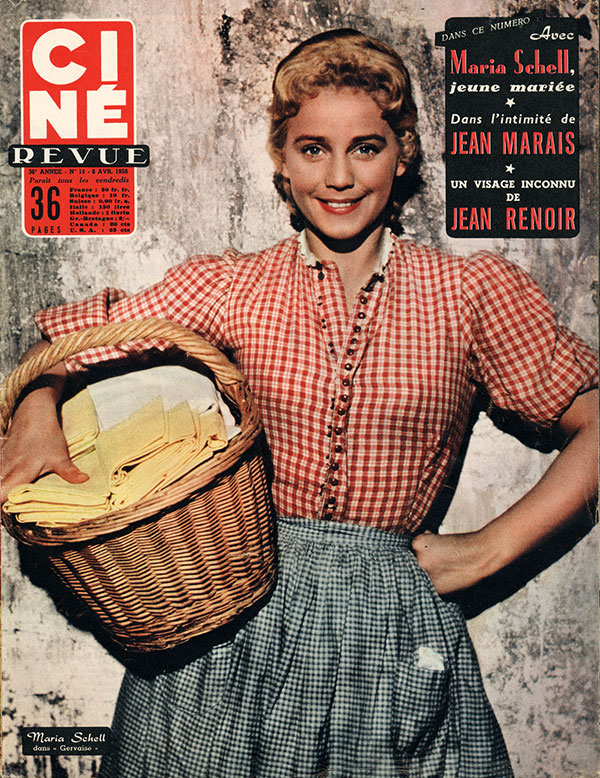
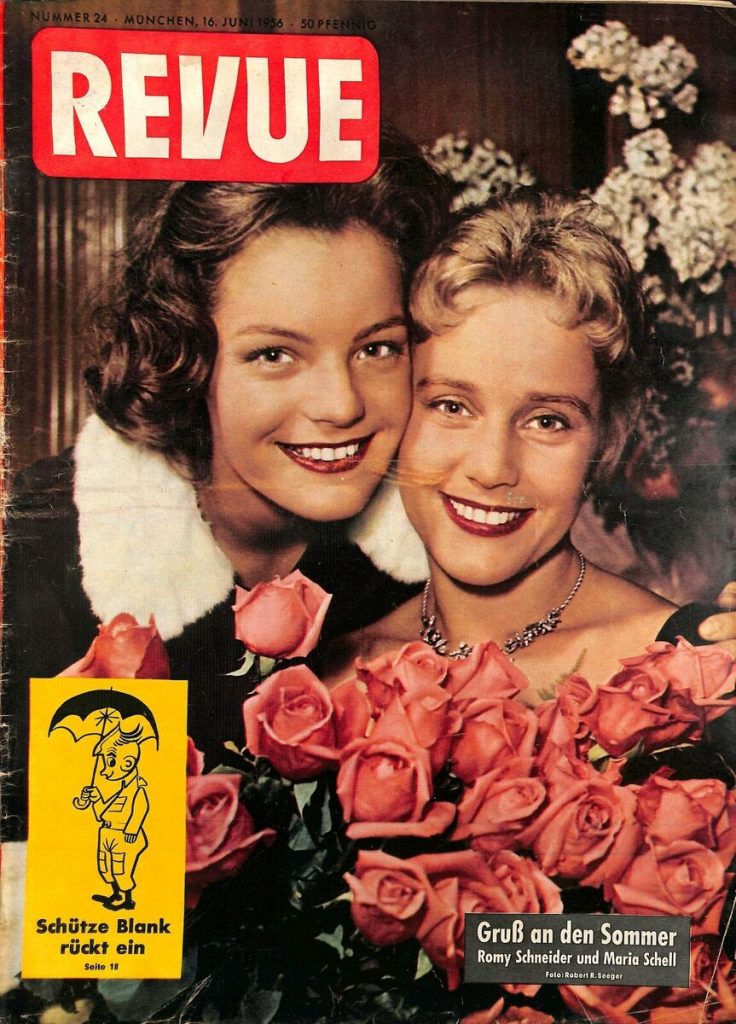
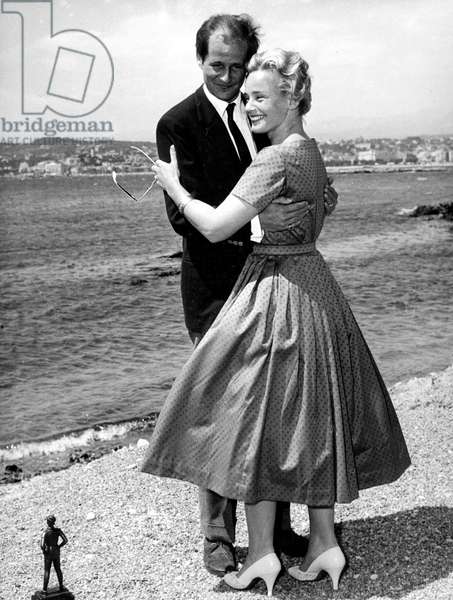
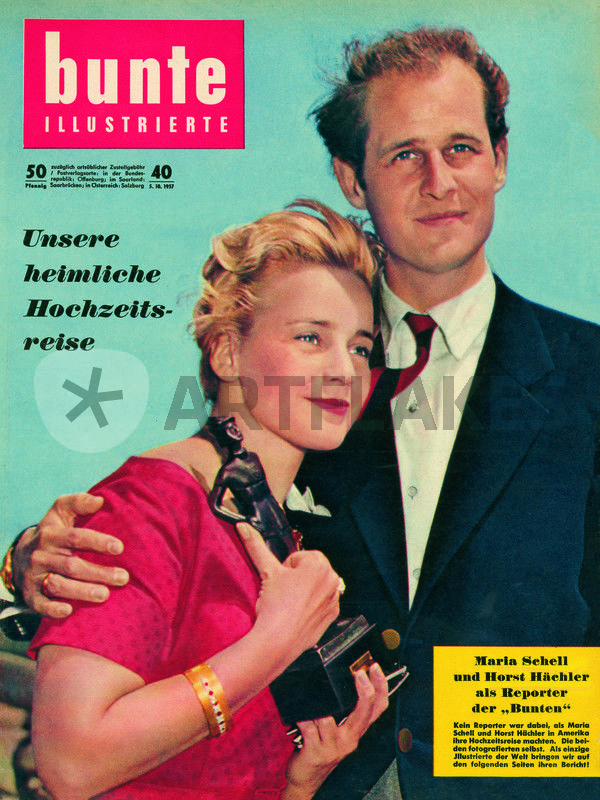
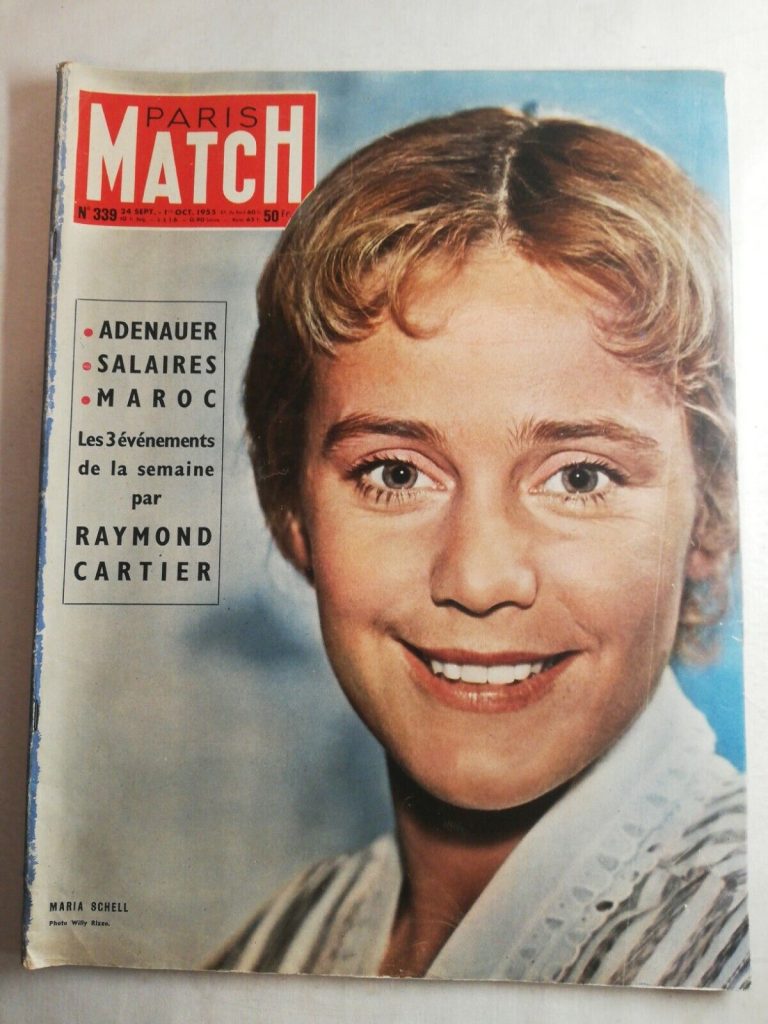
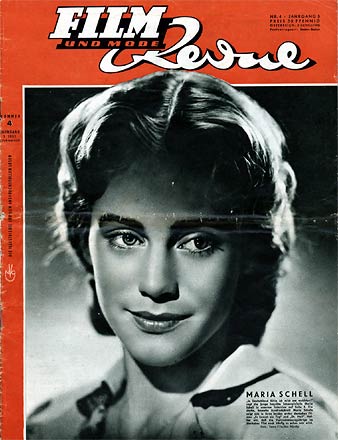
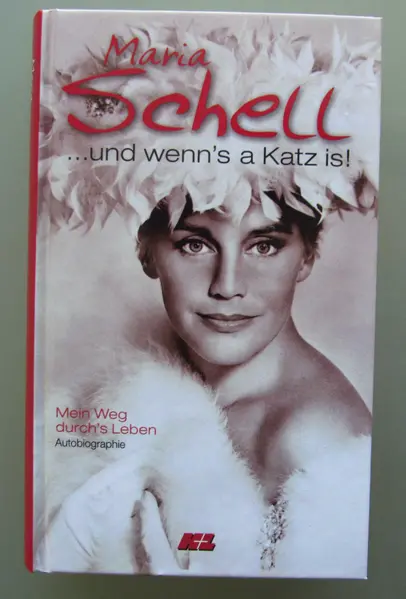
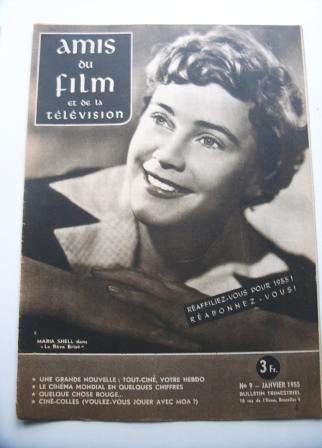
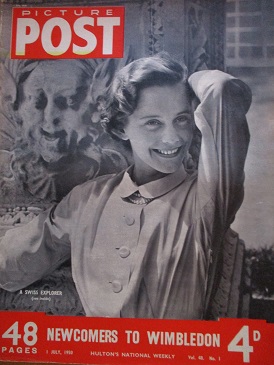
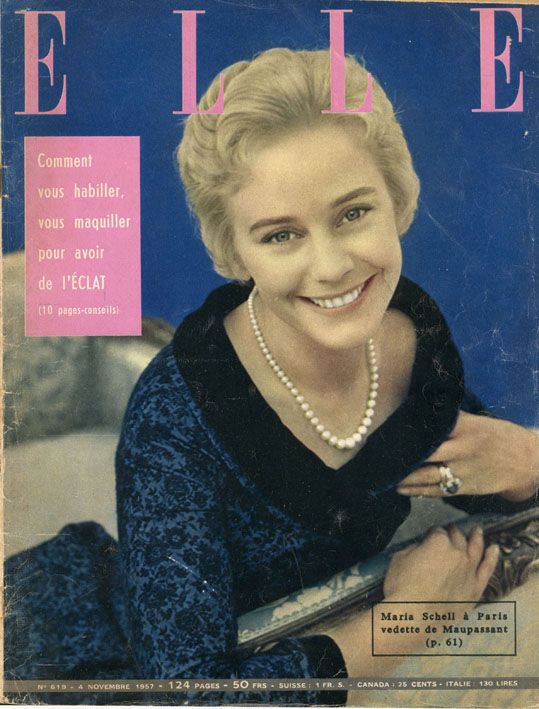
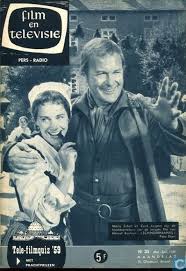
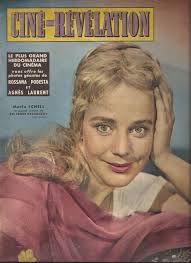
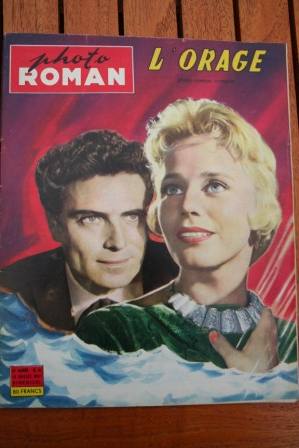
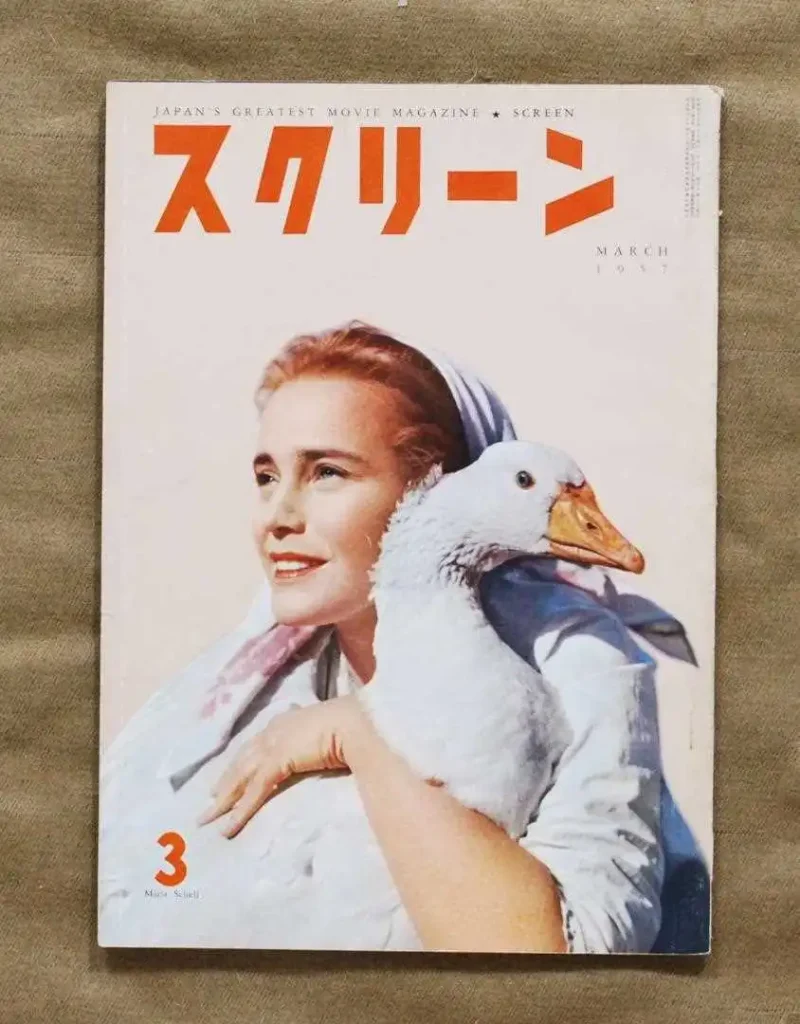
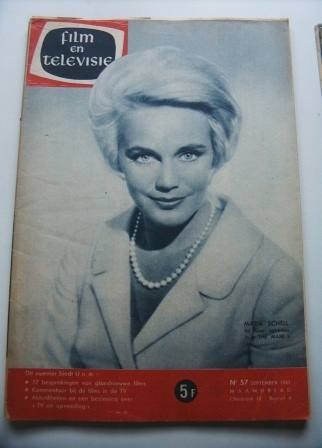
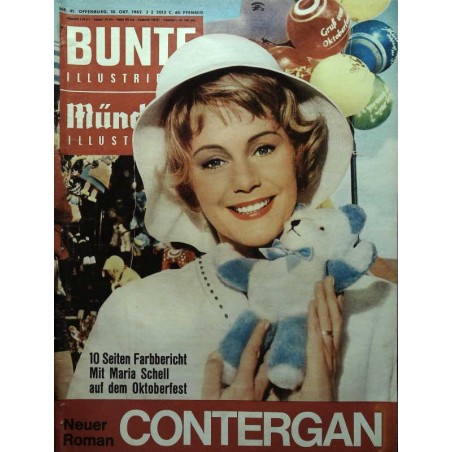
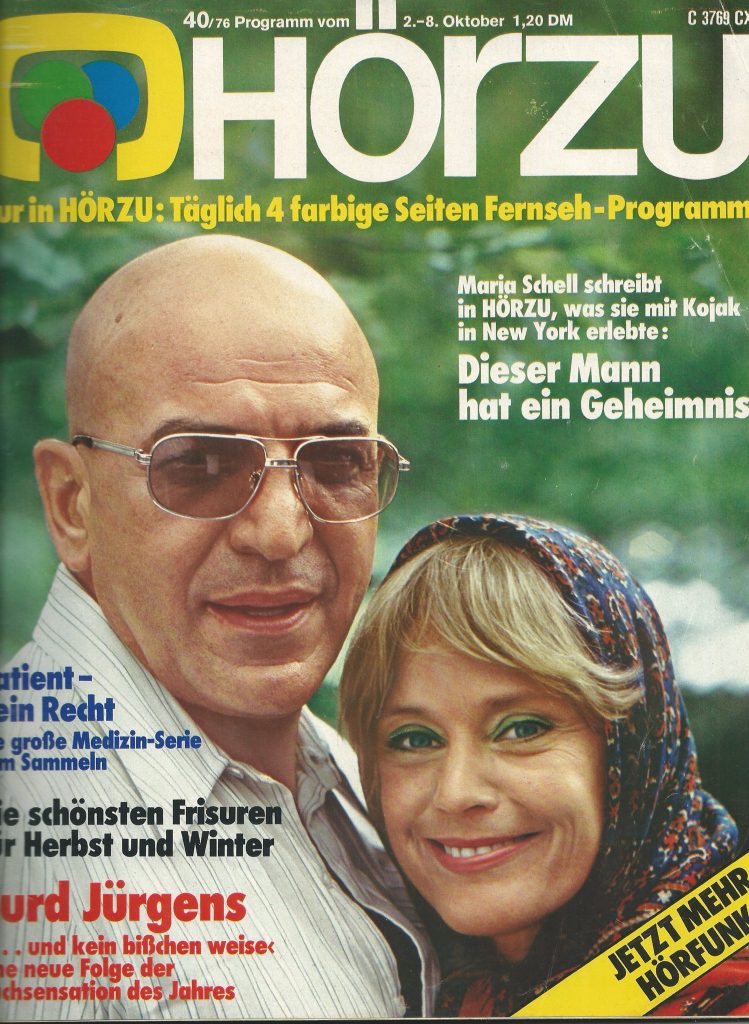
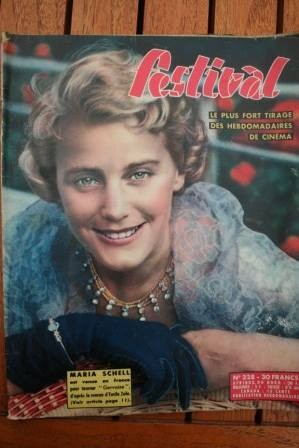
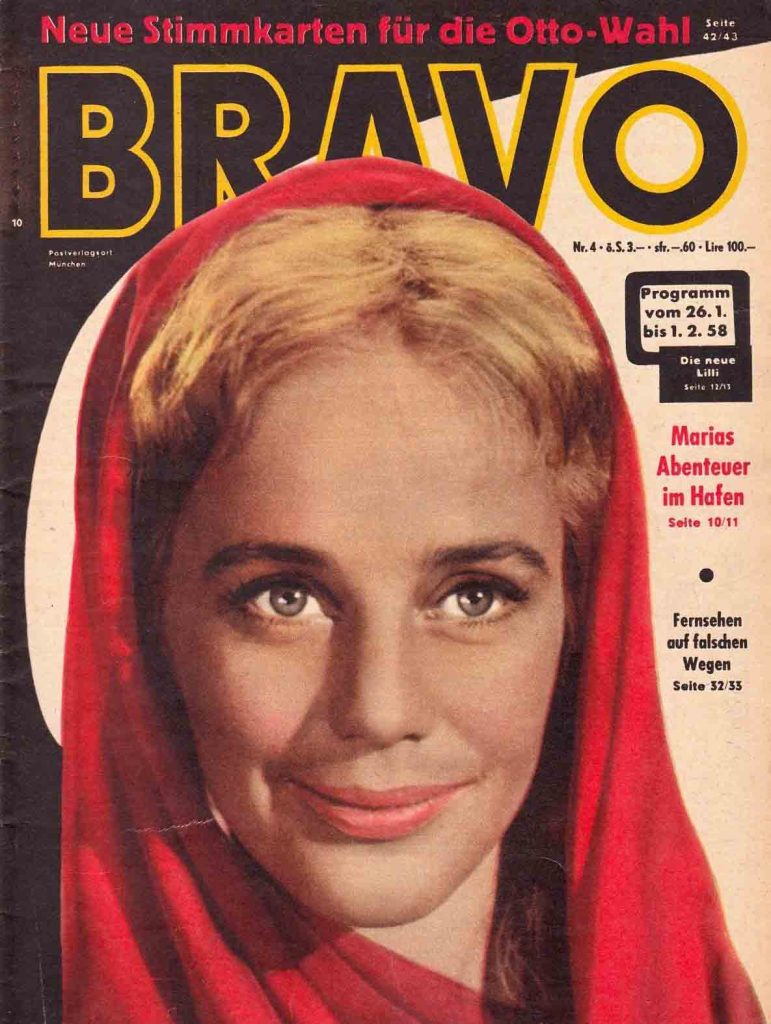

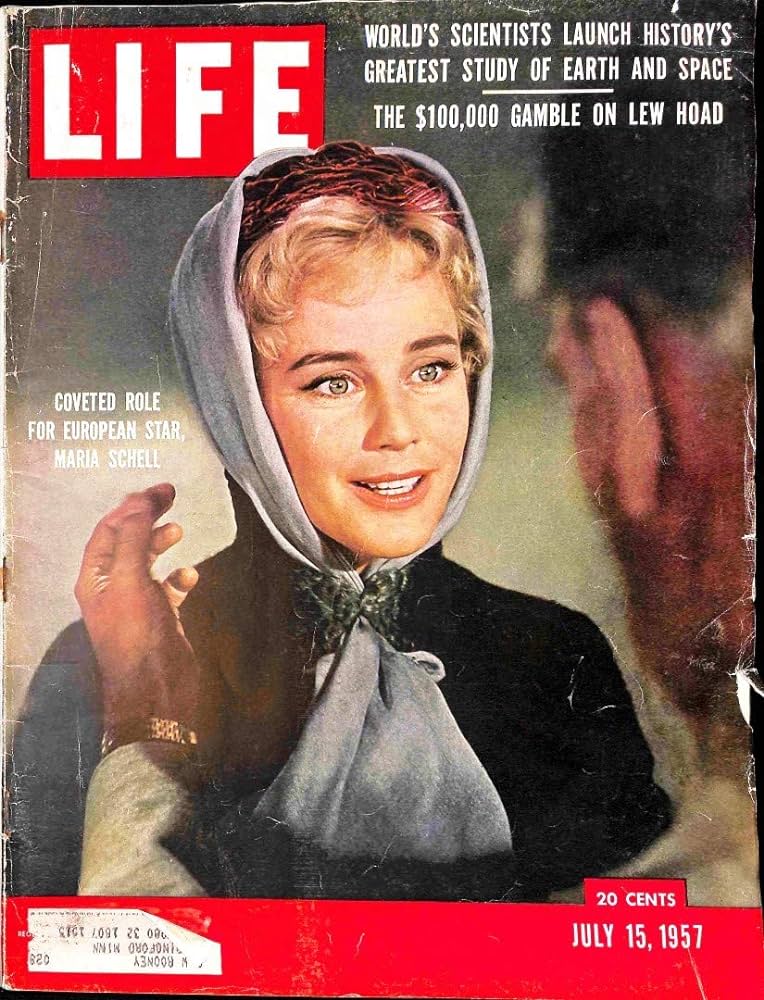
After a busy two years, including Guitry’s lavish Napoleon (1955), she achieved another landmark success, playing the title role in Gervaise, the fifth screen version of Emile Zola’s L’Assommoir. Her performance as the laundrymaid-turned-entrepreneur who sinks into alcoholism won her the Volpi prize at the Venice festival. However, some critics noted an over-reliance on technique in her harrowing performance.
Seemingly destined to be thwarted by love and life, she starred in Visconti’s White Nights (1957), the first of three screen versions of Dostoevsky’s bitter-sweet love story. She played Natalia, who ignores the young man besotted by her, as she daydreams about the eventual return of her handsome, though fleeting, lover.
Her depiction of despairing women reached new heights the following year when she took the lead in an adaptation of a de Maupassant story. In Astruc’s One Life (1958) she played the aristocratic Jeanne, who unwisely marries a handsome womaniser. Following his death, she is left with their son and memories of a loveless liaison. She brought customary intelligence and intensity to the film, but one harsh critic condemned this and other performances as suffused with a “cloying sweetness”.
Schell moved to the US for her fourth film of 1958, playing Grushenka in Richard Brooks’s version of The Brothers Karamazov. The role, famously coveted by Marilyn Monroe, was played in tune with the rest of the sturdy production, but it was not the equal of her western The Hanging Tree, made the following year.
Again, she played the long-suffering heroine, temporarily blinded and tended by a dedicated doctor (Gary Cooper), while at the mercy of rougher cowboys. Her vulnerable demeanour and plaintive, accented voice heightened the drama, but the characterful western proved no more popular than the epic Cimarron (1960), directed by Mann.
One of his less successful films, it miscast Schell and she looked decidedly unhappy throughout. She was better suited to the television remake of Ninotchka. But perhaps Garbo was a difficult act for anyone to follow, and it ended her brief, though busy, stint in the US.
Schell returned to Britain for one of the best, most controversial movies of her long career. The Mark starred Stuart Whitman as a seemingly reformed paedophile who starts a relationship with a widow who has a young daughter. The intrusive press and a concerned psychiatrist contribute to the tension within a sympathetic film that would be impossible to remake today.
At the end of a hectic decade, Schell reduced her schedule to a film or television movie a year. Few were of note: in The Odessa File she was content to play a character role in a lavish production. Surfacing from a welter of television roles, she was one of innumerable stars taking the Voyage Of The Damned (1976) in a well-intentioned but dull movie about the SS St Louis, in which a group of Jewish refugees were transported to apparent safety only to be refused safe haven and returned to Germany.
Like her brother Max, she never lost her commitment to the events of the war nor her interest in classic literature. Such integrity was recognised in 1977 by an award, “for her continued outstanding contribution to the German film industry over the years”.
This had little effect on her international career and, apart from television, her screen appearances were minimal. Among her better small-screen roles was Mrs Speer in Inside The Third Reich (1982). Partly as the result of ill-health, she worked only sporadically during the 90s, but she did play the matriarch in Der Clan Der Anna Voss, a six part mini-series. In 2001, her brother Max announced production of a biographical portrait, My Sister Maria, a record of her life and career. It premiered in January 2002, in their adopted home of Switzerland.
Her two marriages both ended in divorce, the last in 1988, after 22 years with Austrian actor and director Veit Relin. She is survived by a son from her first marriage and a daughter from the second.
· Maria (Margarete) Schell, actor, born January 5 1926; died April 26 2005
Her “Guardian” obituary can also be accessed here.
.

